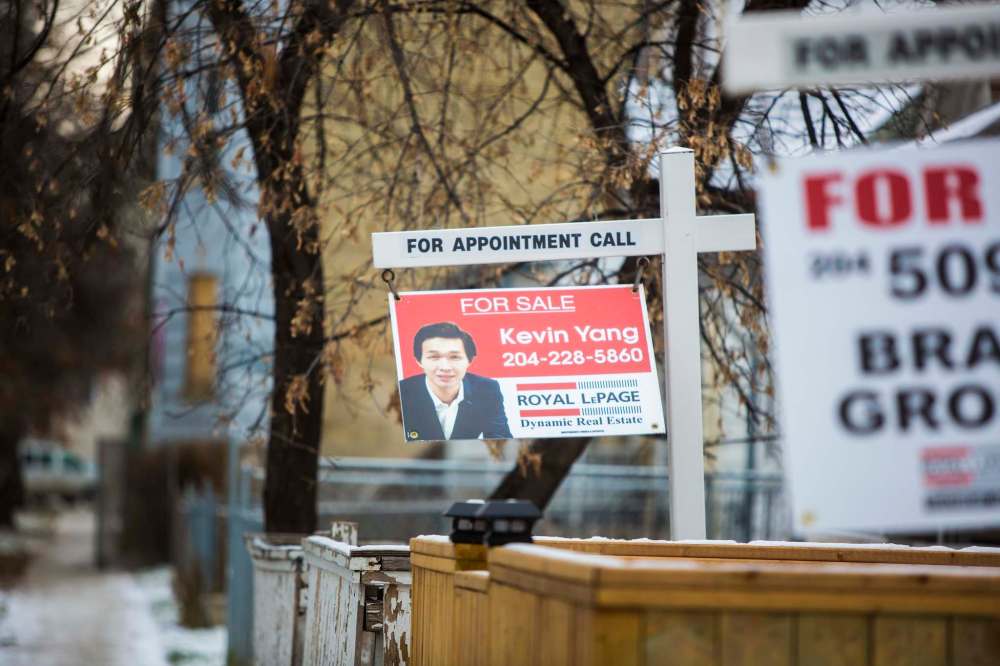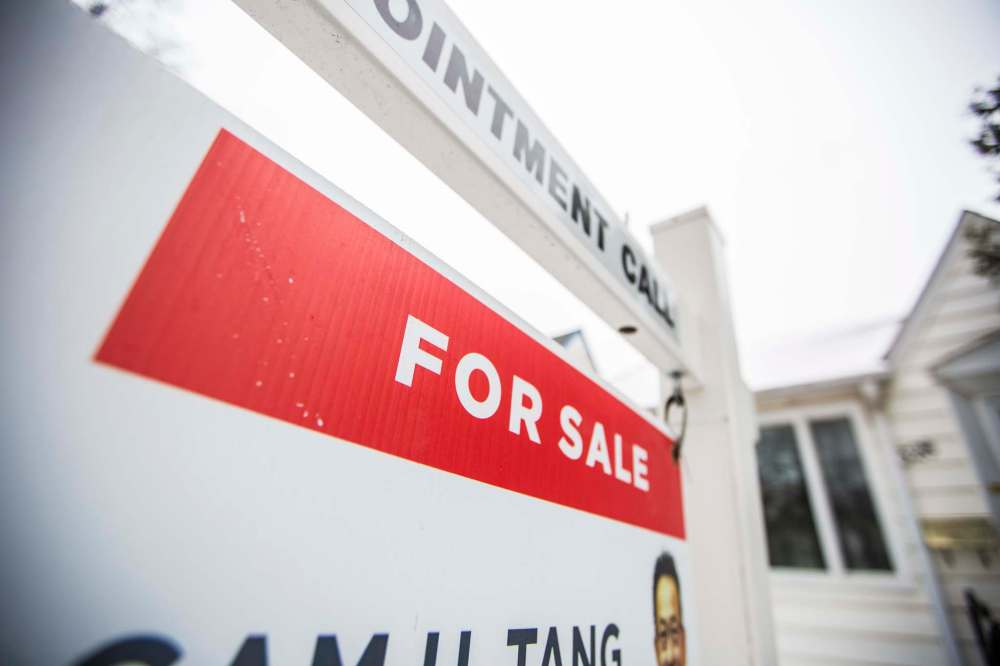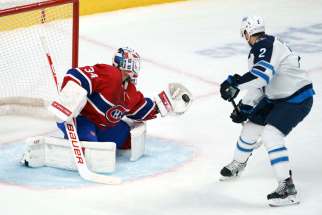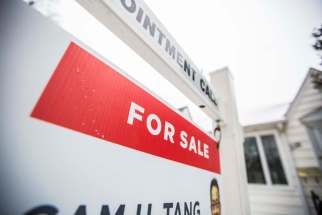Real-estate boom includes cautionary note
Read this article for free:
or
Already have an account? Log in here »
To continue reading, please subscribe:
Monthly Digital Subscription
$0 for the first 4 weeks*
- Enjoy unlimited reading on winnipegfreepress.com
- Read the E-Edition, our digital replica newspaper
- Access News Break, our award-winning app
- Play interactive puzzles
*No charge for 4 weeks then price increases to the regular rate of $19.00 plus GST every four weeks. Offer available to new and qualified returning subscribers only. Cancel any time.
Monthly Digital Subscription
$4.75/week*
- Enjoy unlimited reading on winnipegfreepress.com
- Read the E-Edition, our digital replica newspaper
- Access News Break, our award-winning app
- Play interactive puzzles
*Billed as $19 plus GST every four weeks. Cancel any time.
To continue reading, please subscribe:
Add Free Press access to your Brandon Sun subscription for only an additional
$1 for the first 4 weeks*
*Your next subscription payment will increase by $1.00 and you will be charged $16.99 plus GST for four weeks. After four weeks, your payment will increase to $23.99 plus GST every four weeks.
Read unlimited articles for free today:
or
Already have an account? Log in here »
Hey there, time traveller!
This article was published 01/06/2021 (1655 days ago), so information in it may no longer be current.
Volatile activity in the Winnipeg housing market can offer rich rewards for sellers who feel the time is right to plant “For Sale” signs on their front lawns. For would-be buyers, however, the current market can be precarious.
The demand for Winnipeg houses is outpacing supply, creating a competitive “seller’s market” that has pressured buyers to act with more haste than prudence, and often bid over asking prices. The buyers may pay more than they had budgeted, but console themselves that interest rates are low, so larger mortgages seem affordable. After all, the value of houses will continue to grow and will prove to be sound investments. Right?

Not necessarily, according to Bank of Canada governor Tiff Macklem. In an address last Thursday, he tried to dampen a red-hot housing market with the cold water of caution.
“Some people may be thinking that the kind of price increases we have seen recently will continue. That would be a mistake,” he said. “Interest rates are very low. That means there is more potential for them to go up.”
The Winnipeg housing market has long been known for two attributes: stability and affordability. People with reliable incomes who acted with financial discipline could someday own a home, unlike residents of such cities as Vancouver and Toronto, where housing prices remained beyond the reach of many working people.
The Winnipeg market has surged in recent months, however, setting new records for sales volume with 2,055 homes sold this April, a 141 per cent increase from April 2020. The average selling price was 12 per cent higher than last year, according to the Winnipeg Regional Real Estate Board.. 
A house in Winnipeg used to stay on the market for about 90 days. Now, most sell within a couple of weeks. It’s not unusual to have 15 or so offers per property, with houses selling from $10,000 to $50,000 over the asking price.
Fortunately, rules introduced in Manitoba in 2008 require buyers to be advised if they are competing with other buyers, and offers must be sealed in envelopes that are opened at the same time. This is a common-sense contrast with what occurs in some other places, where sealed bids are not required and multiple bidders can be played against each other, resulting in anarchic auctions where the final selling price lands in a stratosphere far above the down-to-earth value of equivalent houses in the market.
Why are so many people suddenly lining up to buy homes in Winnipeg? One reason is the aforementioned interest rates. Most economists expect they will be kept low until at least the second half of 2022 as the economy rebuilds post-pandemic, but as the Bank of Canada governor warned last week, there’s no guarantee in the longer term.
A second reason for the increased interest in home ownership is lifestyle revelations prompted by the pandemic. Real-estate professionals are hearing that families have realized they need more space because of remote working and home schooling. It’s easier to obey orders to stay home if you have a suitably comfortable home to stay in.
As more Manitobans receive their vaccine, it’s expected more homeowners will decide to sell as they become comfortable with the in-person requirements of showing and selling. This would likely decrease prices and competition among buyers.
If would-be buyers feel frustrated that the average sale price of a Winnipeg home has risen to $335,812, perhaps they can find consolation in a national context: the average sale price of a house in Toronto is $870,000, and in Vancouver it’s $1,036,000.
History
Updated on Wednesday, June 2, 2021 10:22 AM CDT: Adds reference to the Winnipeg Regional Real Estate Board







.jpg?h=215)



